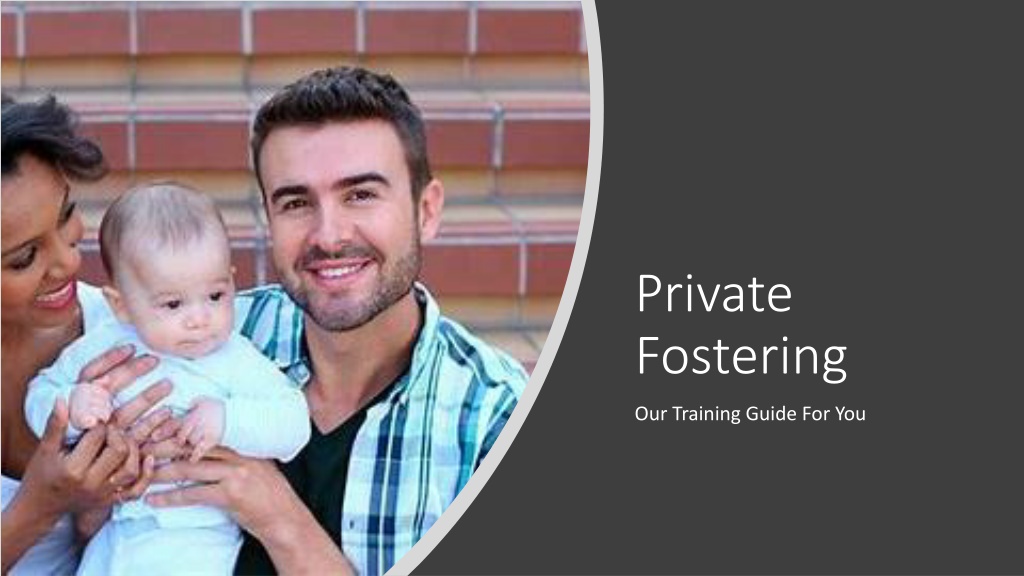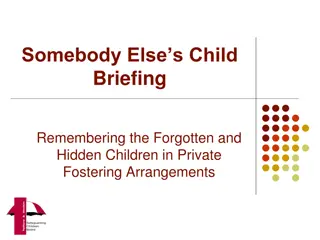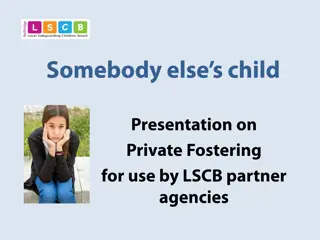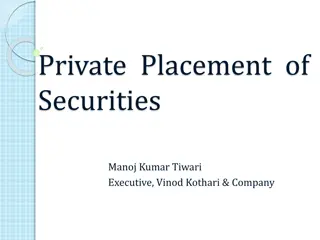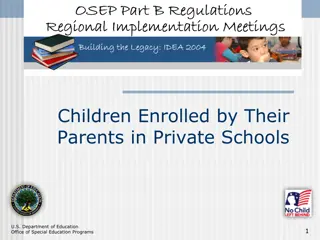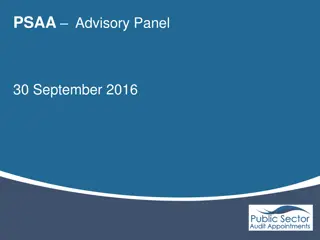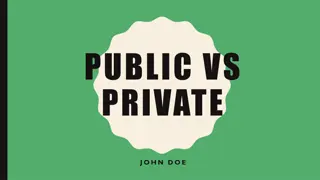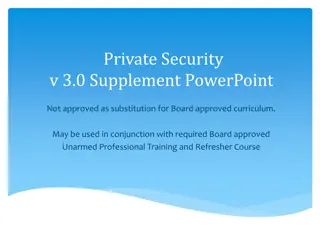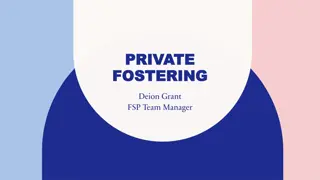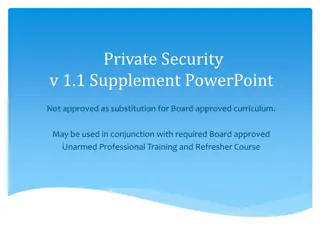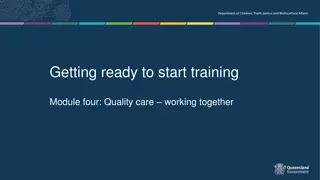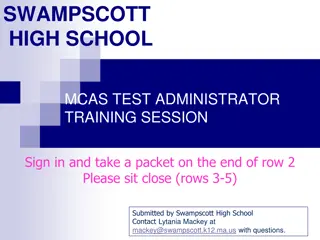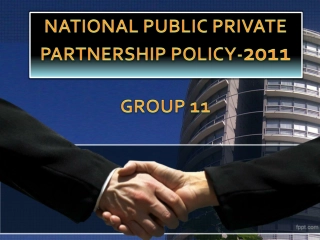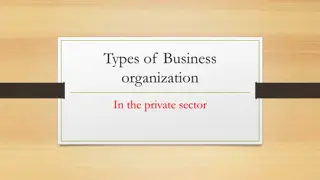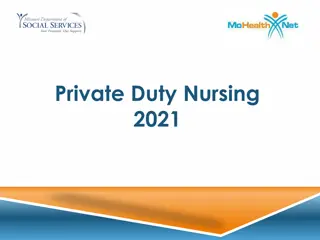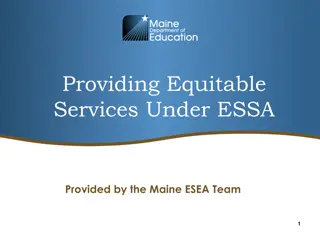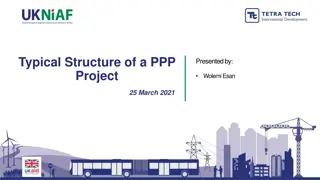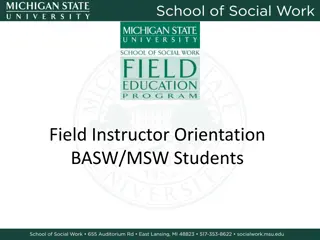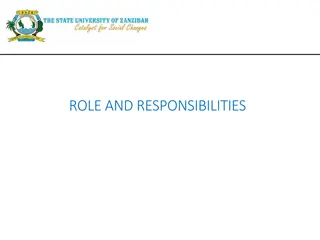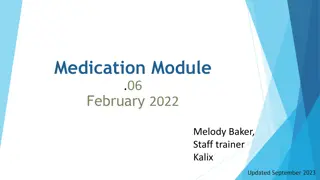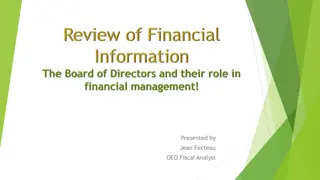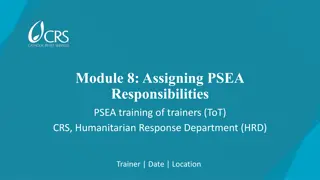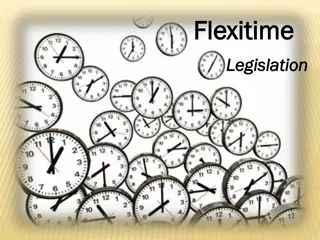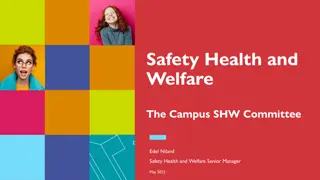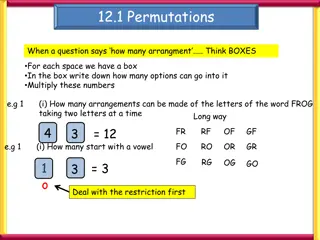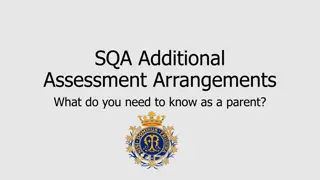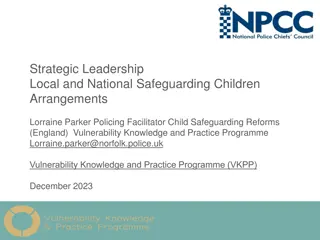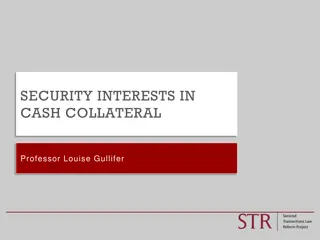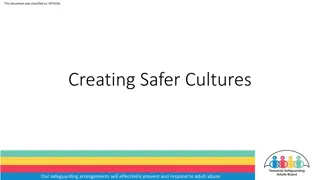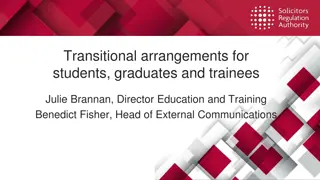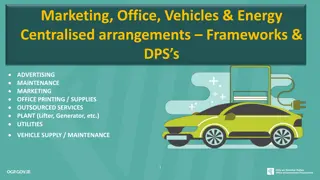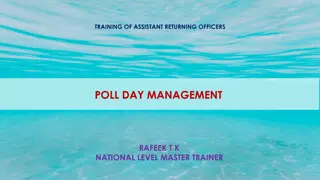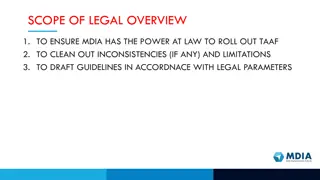Understanding Private Fostering Arrangements and Responsibilities
Private fostering arrangements involve caring for a child without local authority involvement, lasting 28 days or more. These arrangements differ from approved foster care and kinship care, raising concerns about safeguarding vulnerable children. Reasons for private fostering range from educational needs to family circumstances. Local authorities play a crucial role in safeguarding children in private fostering by conducting regular checks to ensure their wellbeing.
Download Presentation

Please find below an Image/Link to download the presentation.
The content on the website is provided AS IS for your information and personal use only. It may not be sold, licensed, or shared on other websites without obtaining consent from the author. Download presentation by click this link. If you encounter any issues during the download, it is possible that the publisher has removed the file from their server.
E N D
Presentation Transcript
Private Fostering Our Training Guide For You
What is Private Fostering DEFINITION OF A PRIVATE FOSTERING ARRANGEMENT A private fostering arrangement is essentially one that is made privately (that is to say without the involvement of a local authority) for the care of a child under the age of 16 (under 18, if disabled) by someone other than a parent or close relative with the intention that it should last for 28 days or more. Private foster carers may be from the extended family such as a cousin or great aunt. However, a person who is a relative under the Children Act 1989 i.e. a grandparent, brother, sister, uncle or aunt (whether of full blood or half blood or by marriage) or step-parent will not be a private foster carer. A private foster carer may be a friend of the family, the parent of a friend of the child, or someone previously unknown to the child s family who is willing to privately foster a child. The period for which the child is cared for and accommodated by the private foster carer should be continuous, but that continuity is not broken by the occasional short break. Exemptions to this definition are set out in Schedule 8 to the Children Act 1989. The private foster carer becomes responsible for providing the day to day care of the child in a way which will promote and safeguard his welfare. Overarching responsibility for safeguarding and promoting the welfare of the privately fostered child remains with the parent or other person with parental responsibility.
What is Private Fostering continued This type of arrangement is completely different to fostering arrangements where children are placed with local authority approved foster carers, or via friends and family (kinship care) foster carers. Many private fostering arrangements remain hidden and this is a cause for concern as privately fostered children, without the safeguards provided by law, are a particularly vulnerable group.
There are many reasons why children are privately fostered. Such examples include those listed below: Children or young people who are sent to this country for education or health care by birth parents from overseas. Children or young people who are living with a friend s family as a result of parental separation, divorce or arguments at home. Children or young people whose parents work or study long or antisocial hours. Teenagers living with their girlfriend s or boyfriend s family. Children or teenagers on school holiday exchanges that last more than 28 day s. The Children or teenagers who are on sports or music sponsorships living away from their families. A parent or an agency, such as a college or sports academy, would normally make such an arrangement.
What are the council s responsibilities? To keep children safe and support families, we need to make regular checks of private fostering arrangements. This is because the local authority has a legal duty to safeguard the wellbeing of children (The Children Act 1989, Private Arrangements for Fostering Regulations 2005). If the care of the child or the accommodation is unsuitable, the local authority can prevent or stop a child being privately fostered. We can also make sure the carer rectifies a problem, for example, fitting smoke alarms or fire guards in the home. We also give advice and support for carers providing private fostering commitments and parents involved in the arrangement.
What are the responsibilities of parents and private foster carers? When a child is privately fostered, the child s parents retain parental and financial responsibility. The law states that anyone directly involved in arranging the placement must notify the local authority about the arrangement. Private foster carers are responsible for carrying out any duties agreed with the parents and must allow a representative of the local authority to visit the child and the premises where the child is being privately fostered, to make sure the child is safe and well cared for. Parents are expected to be fully involved in planning for the future of their child and we advise that a written agreement is drawn up between the parent and the carer outlining the essential aspects of the arrangement.
Private Fostering Facts What professionals must do Professionals in the education, health and social care fields need to be more aware of private fostering arrangements. Ideally, notification of a private fostering arrangement should come from the parent or carer, but education, health and social care professionals can also play an important role in identifying these arrangements and advising parents and carers of their responsibilities. If you know that a child is being privately fostered, and you think that the council is unaware, please notify us or encourage the carer or parent to do so. You will not be breaching confidentiality, and may help secure the welfare of the child concerned. It is good practice to inform the carer and/or parent that you are making a referral, but doing so should not delay your referral to the council.
What birth parents must do: What private foster carers must do: Private Fostering Facts Birth parents and private foster carers. Advise the local council of the private fostering arrangement. Advise their local council of their intention to foster a child at least six weeks in advance or, where an emergency placement is made, within 48 hours of the child s arrival. Retain parental responsibility; initiating and participating in all the decision making processes in the placement. Notify their local council when a child leaves their care, stating why and giving the name and address of the person into whose care the child has been moved. Provide the prospective carer with as much information about the child as possible, including health records, dietary preferences, school records, hobbies, religion and ethnicity.
What the council will do Private Fostering Facts Expectations from the council It is estimated that about 10,000 children in England are privately fostered. In over 50% of cases councils aren t being notified and when they are informed, it is nearly always after the arrangement has started. We will arrange to visit the child and check that the private fostering arrangement is suitable. A child can be removed from a private foster placement if there is reasonable cause to suspect that the child is suffering, or is likely to suffer significant harm. This is a huge cause for concern, as privately fostered children, without the protection provided by the council, are a particularly vulnerable group. We will work with all parties involved and offer support and advice including advice on any benefits that may be available and links to support networks. It is a legal requirement that council s are notified of all private fostering arrangements. We will check that the children and young people are kept safe, well cared for in appropriate accommodation and happy.
